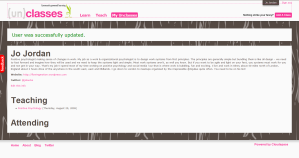 Our utilities have changed beyond recognition
Our utilities have changed beyond recognition
In the last five or is it six or seven years, our lives have been transformed. In a year or two, we might count banking crises and revolutions and seismic activity in the change. Right now, I am talking about Google, Facebook and Twitter who have crept into contemporary live as assuredly as TV, running water and phones.
The ubiquity of new internet services and their ready availability to everyone – rich or poor, powerful or disposed – gives them the status of institutions. Google is now a verb. “Google it!” Facebook is a noun. “I am a bad Facebooker.” Twitter has its own vocabulary. “RT” = “retweet”.
The very ubiquity of internet services worry us. They seem to have taken over our lives.
The characteristics of new institutions
But of course, they have taken over our lives. New utilities scare us because they reflect deep changes in society and our status relative to each other. That is the point.
New institutions have three characteristics.
- They bring us together in a forum – in a talking shop – on a massive scale.
- They provide a “complete world” where everyone and every interest is invited.
- They allow us to take part in history – indeed they allow us to make history.
Are we about to see even more new institutions emerge?
I have a deep sense that we are going to see changes in these central apps – not necessarily in technology but in whom they serve.
If we want to foresee change, indeed if we want the heady experience of being part of history, we have to look at the world historically and socially with a keen eye. Who is included in the “complete world” as of today? And who is on the sidelines waiting to join in?
When we add a wider range of pressing interests to the mix, where will we see new institutions germinating and sprouting because people are looking for a forum where they can connect ever more widely to make history.
It is not the disaffected that matter so much in the emergence of institutions. It is who wants to connect more widely. Who wants to connect where they couldn’t connect before? Who is genuinely interested in listening to other people who aren’t part of their current existence?
Further reading on the birth of institutions
Barbara Czarniawska. (2009). Emerging Institutions: Pyramids or Anthills. Organization Studies 30(4). pp 423-441. (History of the London School of Economics) [Download the full paper following link highlighted in yellow in the middle column]
Leave a Comment